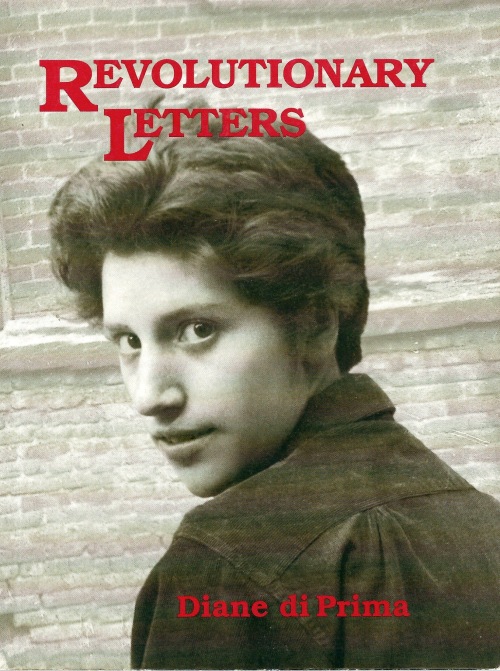Feeling a need to be inspired in these dismal times?
Been burnt out with academic writing that doesn’t originate in your soul?
Seeking a community of comrades to inspire, console, and rouse you?
Wanting to dive deep within and seek connections locally, nationally, and globally?
Then join us in exploring the vision, work and life of Diane di Prima—poet, Buddhist, Italian-American, feminist, pacifist.
One Saturday morning, while writing a letter to one of my favorite poets (Lindsey Trout Hughes, who lives in Brooklyn), it dawned on me that I wanted my next writing/reading class to focus on Diane, whom Allen Ginsberg described like this: “Diane di Prima, revolutionary activist of the 1960s Beat literary renaissance, heroic in life and poetics: a learned humorous bohemian, classically educated and twentieth-century radical, her writing, informed by Buddhist equanimity, is exemplary in imagist, political and mystical modes. … She broke barriers of race-class identity, delivered a major body of verse brilliant in its particularity.”
In Saint Louis, we’ll gather on Sundays at 2 p.m. beginning October 28 and go till December 16. We’ll meet in different cafes and people’s homes (if people are up for that). Each session will go for 90 minutes, allowing ample time for reading, writing, and sharing.
For those anywhere with access to the Internet, online class begins Monday 29 October. You’ll need about 2-2.5 hours a week, minimum, to engage with the readings and process.
We’ll all contribute to and share our reflections and resources at a class blog.
Saint Louis class tuition $150, online class tuition $110, payable to me by check or Paypal (markjchmiel@gmail.com).
Required Books:
Diane di Prima, Recollections of My Life as a Woman—The New York Years
Diane di Prima, The Poetry Deal
(both available as paperbacks)
Recommended Books:
Shunryu Suzuki, Zen Mind, Beginner’s Mind
Anne Waldman and Laura Wright, Beats at Naropa: An Anthology
A Short Sampling of Diane’s Work
Early in November, just a week after Freddie died I began writing a book to him in the form of a long letter/journal. It was the one thing I could think of doing. Most of the time the pain was too much to hold still for, and I went around in a haze from one thing to another. But I knew from doing Zen meditation: one can hold still, hold the mind still, if it is a task. Even better if it is a finite task, has a foreseeable end. So when the loss got to be too much, I would go into my study, light a stick of incense and tell myself I’d type (write) till it had burned away. That particular incense took about forty minutes, and that seemed a possible time span, though not easy. I could always look up and see how much incense was left. It made more sense than a clock. I wrote the book for a year, though not every day, and ended on the anniversary of his death.
—Recollections of My Life as a Woman
[Embracing a suggestion from Dear Abby to “take time to remember those brave souls who gave their lives for freedom”]
Remember John Brown
Remember the slave revolts
Remember Malcolm
Remember Paracelsus
Remember Crazy Horse & Chief Joseph
Remember Huey and Little Bobby Hutton
Remember Tina Modotti
Remember Amelia Earhart
— “Memorial Day 2003”
most of what I’m writing
not that interesting
but the act of writing itself
more compelling than ever.
—“OLD AGE: The Dilemma”
my vow is:
to remind us all
to celebrate
there is no time
too desperate
no season
that is not
a Season of Song
— “Poet Laureate Oath of Office”
the map: first goal is health
strong bodies make strong spirit, Venceremos Brigade
coming back from Cuba discover they know how to breathe
They can get up with the sun…
—Revolutionary Letter #43
As far as sending things out goes, my preference happens to be the U.S. Mail. The postal service. I don’t care how many days it takes. In fact, I kind of like that it takes days. I like to collage a postcard before I send it out. I love to get and receive handwritten letters.
—“By Any Means Necessary”
What I saw then was this fairly obvious faculty of art: that it goes on, it lasts a bit longer that our frail human lives—it offers comfort. The vision is more enduring that our persons—it uplifts us past the vicissitudes of time, uplifts till it, too, is done or forgotten: ten years, five hundred years. It is the working of our loving hearts, burrowing out of us into the light of day. Like Bodhisattvas we bring this liberation, this space to each other when we are simply ambitious: working for fame, as Keats once thought he was doing. Working for money or glory. What we are left with is finally what we leave: this reaching out to touch, to comfort others. To make the world bearable, possible at all.
—Recollections of My Life as a Woman
As you read this line one thousand have died of AIDS.
They die alone in furnished rooms. They die on
the earth all over Africa.
halfway around the world the bombs are falling
—Revolutionary Letter #78

2 Comments